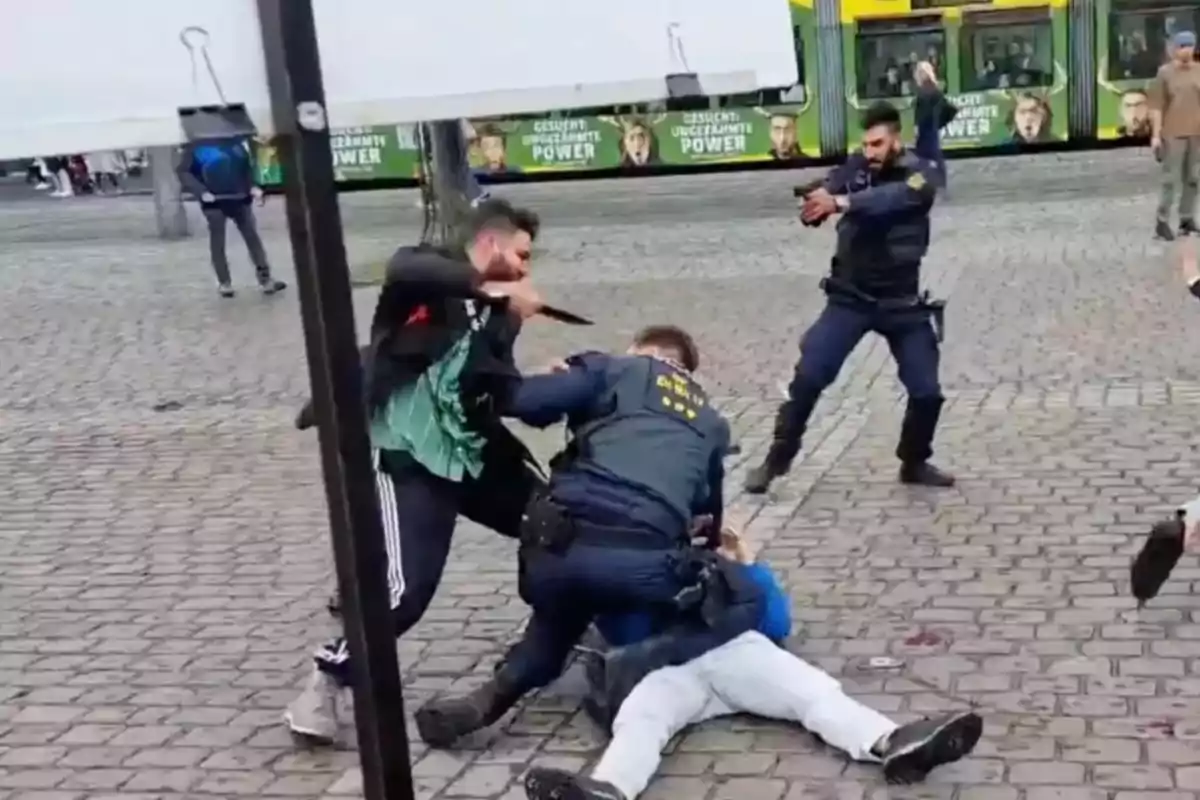
Germany already records an average of 79 knife attacks per day
This situation is the fault of the open borders policy, which allowed millions of illegal immigrants to enter
The open borders policy promoted by former left-wing German Chancellor Angela Merkel, which allowed the entry of one million illegal immigrants in 2015, has resulted in a notable increase in insecurity levels in Germany.
Official crime data reveal that there are currently 79 knife attacks per day, a figure that reflects an alarming increase in violence in public spaces.
In 2024, the police reported a total of 29,014 crimes committed with bladed weapons, representing a 10.8% increase in cases of serious and dangerous bodily harm compared to the previous year.

Several analysts consider that the knife has become a symbol of constant threat. "It represents a direct danger to people's lives and physical integrity," stated Manuel Ostermann, vice president of the Federal Police Union of Germany.
According to his assessment, the concerning issue is that the use of knives has ceased to be an isolated incident and has become a common practice in numerous regions of the country.
In cities like Halle, Bielefeld, or Frankfurt, media headlines repeat with disturbing frequency: young people stabbed in broad daylight, conflicts escalating into homicides, attacks on police officers during bar disturbances.
German society watches with growing concern as this type of violence, once considered sporadic, has become part of the everyday landscape.

"Knives are used even for trivial arguments," says Rainer Wendt, president of the German Police Union, who warns of a worrying decrease in social tolerance toward aggression. "The threshold of aggressiveness is increasingly lower and reactions more impulsive. The fuse has shortened," he expresses with alarm.
Criminal lawyer and criminology specialist Udo Vetter points out that this behavior has become common especially among the younger ones. "If some choose to carry knives to intimidate or attack, others imitate them as a means of defense. The result is a general escalation of violence," he comments.
Additionally, Vetter identifies a cultural background in this phenomenon. He explains that in certain cultural environments, the knife is not only a weapon but also a status symbol. The arrival of a large number of illegal immigrants from these cultures is transforming the culture in Germany. "We have imported this form of violence and still do not know how to respond," he concludes.
In light of this situation, Wendt calls for urgent intervention in the school environment to prevent early access to bladed weapons. Meanwhile, Manuel Ostermann demands a firm reaction from the political power: "It is time for the state to act firmly. Perpetrators must be identified without hesitation and all available legal resources must be applied to contain this growing threat."
More posts: